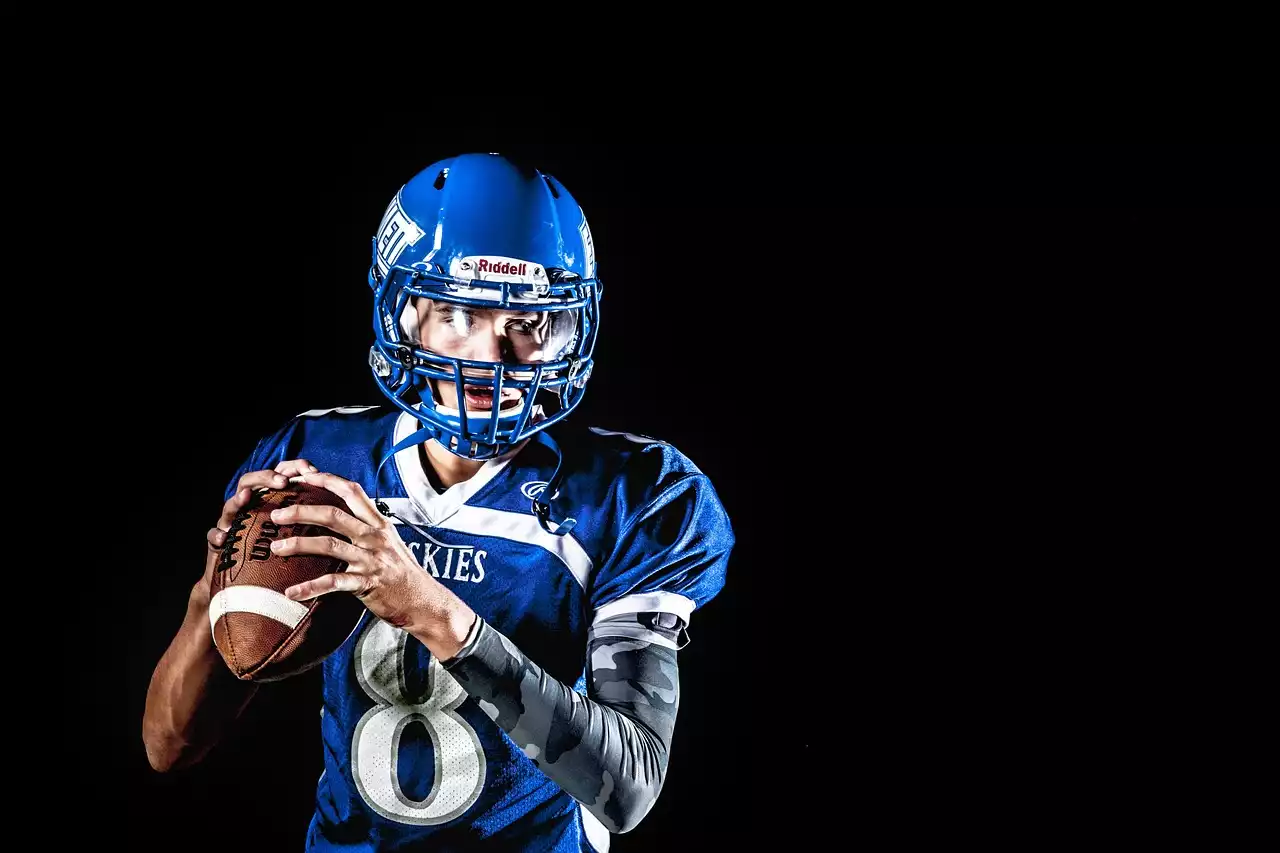Offensive Positions and Their Roles
The offense is the team that has possession of the ball and is trying to score points. The quarterback is the most important player on the offensive side of the ball. They are responsible for throwing the ball, handing it off to running backs, and making decisions on the field. Running backs are responsible for carrying the ball and running it down the field. Wide receivers and tight ends are responsible for catching passes from the quarterback and running with the ball. Offensive linemen are responsible for blocking and protecting the quarterback and the other offensive players. They are often the largest players on the team.
The quarterback is the leader of the offense, and their primary responsibility is to throw the ball. They must be able to read defenses, make quick decisions, and accurately throw the ball to their receivers. Running backs are responsible for running with the ball and gaining yards. They must be quick, agile, and able to break tackles. Wide receivers and tight ends are responsible for catching passes from the quarterback and running with the ball. They must be fast, agile, and able to make quick cuts to get past defenders. Offensive linemen are responsible for blocking and protecting the quarterback and the other offensive players. They must be strong, agile, and able to work together as a unit.
Defensive Positions and Their Roles
The defense is the team that is trying to stop the offense from scoring points. Defensive linemen are responsible for stopping the run and rushing the quarterback. Linebackers are responsible for stopping the run and covering receivers. Cornerbacks are responsible for covering wide receivers, while safeties are responsible for stopping the deep pass and helping with run defense.
Defensive linemen are responsible for stopping the run and rushing the quarterback. They must be strong, quick, and able to shed blocks. Linebackers are responsible for stopping the run and covering receivers. They must be fast, agile, and able to read offenses. Cornerbacks are responsible for covering wide receivers. They must be fast, agile, and able to stay with their man. Safeties are responsible for stopping the deep pass and helping with run defense. They must be fast, agile, and able to read the quarterback's eyes.
Special Teams Positions and Their Roles
Special teams are responsible for kicking, punting, and returning kicks and punts. The kicker is responsible for kicking field goals and extra points. The punter is responsible for punting the ball down the field. The long snapper is responsible for snapping the ball to the punter or kicker. Kick returners and punt returners are responsible for catching the ball and running it back down the field.
Kickers are responsible for kicking field goals and extra points. They must be accurate, strong, and able to handle pressure. Punters are responsible for punting the ball down the field. They must be able to kick the ball high and far, and also be able to control the direction of the kick. Long snappers are responsible for snapping the ball to the punter or kicker. They must be accurate, fast, and able to handle pressure. Kick returners and punt returners are responsible for catching the ball and running it back down the field. They must be fast, agile, and able to read the field.
Understanding the Importance of Each Position for Team Success
Each position on the football field is important and contributes to the success of the team. The offense needs a strong quarterback to lead the team, running backs to gain yards, and receivers to catch passes. The defense needs strong linemen to stop the run and rush the quarterback, linebackers to stop the run and cover receivers, and cornerbacks and safeties to cover receivers and stop the deep pass. Special teams need accurate kickers and punters, fast returners, and a reliable long snapper.
How to Determine Which Position is Best for You
If you are interested in playing football, it's essential to determine which position is best for you. Consider your strengths and weaknesses, as well as your physical attributes. If you are tall and have good hands, you may be a good fit for a wide receiver or tight end. If you are fast and agile, you may be a good fit for a running back or cornerback. If you are strong and have good footwork, you may be a good fit for an offensive lineman or defensive lineman.
Training and Skill Development for Each Position
To be successful in football, it's essential to train and develop your skills for your position. For quarterbacks, this may include practicing throwing accuracy and reading defenses. Running backs may practice agility and footwork, while linemen may focus on strength training and blocking techniques. Defenders may practice tackling and coverage skills, while kickers and punters may practice kicking accuracy and distance.
Common Mistakes to Avoid in Each Position
Each position has its own set of common mistakes that players should avoid. Quarterbacks should avoid throwing into double coverage, while running backs should avoid fumbling the ball. Offensive linemen should avoid holding penalties, while defensive backs should avoid pass interference. Kickers and punters should avoid missing kicks, while returners should avoid fumbling the ball.
The Evolution of Football Positions over Time
Football positions have evolved over time, with new positions being created and old positions being phased out. For example, the fullback position, which was once a prominent position in football, has become less important in today's game. The quarterback position, on the other hand, has become more important, with quarterbacks now being some of the highest-paid players in the league.










